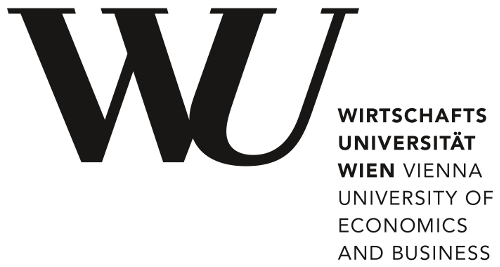About US
Team
Who created the tool for hotspot analysis?
The Hotspot Analyis Tool for Sustainable Consumption and Production (SCP-HAT) was commissioned by the Life Cycle Initiative together with the One Planet Network and the International Resource Panel.
The tool was developed by WU Vienna, in collaboration with CSIRO kindly supported by Sydney University & the IELab who provided the GLORIA database.
Text Title

One Planet network
The One Planet network is working to make sustainable consumption and production (SCP) a reality. Composed of 700 partners from governments, businesses and civil society organizations, this multi-stakeholder partnership has formed over the last 5 years to support the implementation of the 10-Year Framework of Programmes on Sustainable Consumption and Production (10YFP), a UN Member States’ initiative adopted in 2012 and now embedded in the 2030 Agenda for Sustainable Development.
The One Planet network serves an implementation mechanism for Sustainable Development Goal 12 that provides tools and solutions to tackle the social, economic and environmental challenges of a world with growing needs and finite natural resources.
Text Title

International Resource Panel
The International Resource Panel (IRP) was launched by the United Nations Environment Programme (UN Environment) in 2007 to build and share the knowledge needed to improve our use of resources worldwide.
The Panel consists of eminent scientists, highly skilled in resource management issues. Their reports distil the latest scientific, technical and socio-economic findings around global resource use. They provide advice and connections between policymakers, industry and the community on ways to improve global and local resource management. The Panel includes scientists and governments from both developed and developing regions, civil society, industrial and international organizations.
The Panel’s goal is to steer us away from overconsumption, waste and ecological harm to a more prosperous and sustainable future.
Text Title
CSIRO
The Commonwealth Scientific and Industrial Research Organisation (CSIRO) is Australia’s national research institute and among the top 1% international science institutes globally. CSIRO has been a research collaborator with UN Environment since a decade informing SCP and resource efficiency policies through scientific analysis, datasets, indicators and modelling.
Text Title

Life Cycle Initiative
The Life Cycle Initiative is a public-private, multi-stakeholder partnership enabling the global use of credible life cycle knowledge by private and public decision makers.
Hosted by UN Environment, the Life Cycle Initiative is at the interface between users and experts of Life Cycle approaches. It provides a global forum to ensure a science-based, consensus-building process to support decisions and policies towards the shared vision of sustainability as a public good. It delivers authoritative opinion on sound tools and approaches by engaging its multi-stakeholder partnership (including governments, businesses, scientific and civil society organizations).
The Initiative facilitates the application of life cycle knowledge in the global sustainable development agenda in order to achieve global goals faster and more efficiently.
Text Title

Vienna University of Economics and Business
The research group “Global Resource Use” at the Institute for Ecological Economics at the Vienna University of Economics and Business (WU) is one of the leading European groups in the areas of natural resource accounting and indicators, modelling and assessments, focusing on materials, water and land use.
Together with CSIRO the group compiles and maintains the Global Material Flows Database of the UN International Resource Panel.
It is engaged in further developing approaches on environmental accounting, in particular in the area of multi-regional input-output (MRIO) models for calculating consumption-based resource use indicators.
GLORIA
GLORIA
The GLORIA model (Global Resource Input-Output Assessment) is a multi-regional input-output database that was built by the University of Sydney using the IELab infrastructure for the UN International Resource Panel (UN IRP) in the context of the update of the material footprint accounts forming part of the UN IRP Material Flows Database. To use synergies between different UNEP initiatives it was decided to use GLORIA also as underlying MRIO model for the Sustainable Consumption and Production Hotspots Analysis Tool (SCP-HAT). The technical documentation outlines the construction approach for the MRIO table, lists the source data sets that were used, the quality checks that were performed, and holds additional, method- and data-specific information about the construction process.
Acknowledgement
Advisory team
The tool development was reviewed and advised by a team of renowned experts in the field, including members of the International Resource Panel (IRP) the Life Cycle Initiative (LCI) and other institutions: Maria José Baptista (UNEP), Magda Biesiada (UNEP), Jillian Campbell (UN CBD), Llorenç Mila I Canals (UNEP), Ludgarde Coppens (UNEP), Mirko Dal Maso (UNEP-DTU), Niklas Halberg ( ), Steffi Hellweg (IRP/ETH), Edgar Hertwig (NTNU/IRP), Jerome Malavelle (UNEP), Joséphine Mule (UNEP), Gerald Mutisya (Ozonaction), Niklas Nierhoff (BAFU), Adebiyi Odegbile (UN), Pascal Peduzzi (UNEP), Stephan Pfister (IRP/ETH), Fabienne Pierre (UNEP), Sandra Aparcana Robles (UNEP-DTU), Alexandra Soezer (UNDP), Arnold Tukker (CML), Victor Valido (UNEP/IRP).
Country experts
Project management and coordination
10YFP Secretariat / One Planet network
Fabienne Pierre, Programme Management Officer, with the support of Listya Kusumawati, Consultant, under the supervision of Charles Arden-Clarke, Head of the 10YFP Secretariat
Life Cycle Initiative
Llorenç Milà I Canals, Head, and Kristina Bowers, Programme Management Officer, Secretariat of the Life Cycle Initiative
International Resource Panel
Victor Valido,
Project Manager,
Secretariat of the International Resource Panel
Technical supports
Content
Stephan Lutter, Stefan Giljum, Maartje Sevenster, Heinz Schandl
Data management and visualisation
Maartje Sevenster and Lukas Sattler
Webdesign
Daniel Schmelz and Lukas Sattler
Donors
The project also benefited from the generous financing support of the European Commission and Norway.